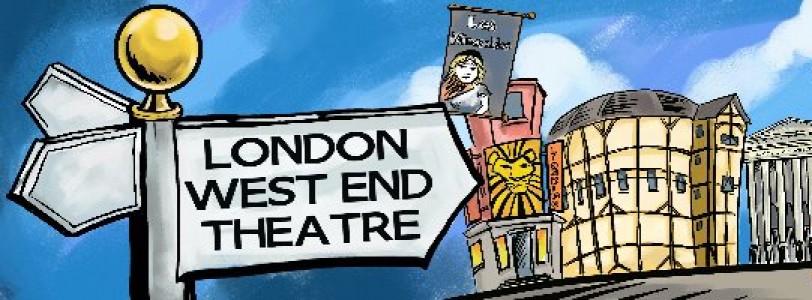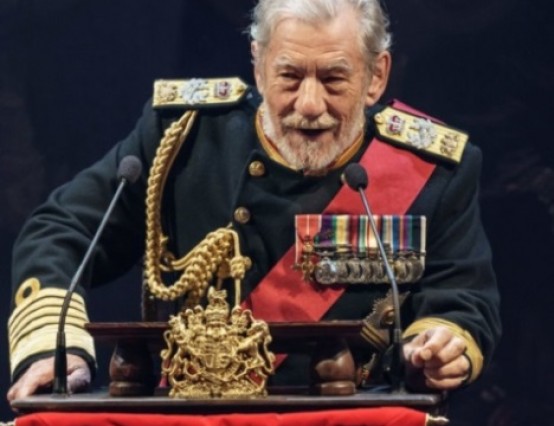Is West End theatre too expensive?
In my opinion, West End theatre is becoming more and more expensive. The cost of a ticket appears to be rising and accessibility is shrinking. To see a show in the West End today you either pay top price (of somewhere over £100) or suffer vertigo and/or restricted views for a cheap seat of around £40. The only other way in (if you’re trying to save some money) is by luck or military grade planning. Some theatres offer cheap seats on the day or in the case of The Book of Mormon a daily lottery where people rely on chance to pay £20 for a front row seat[1]. For those of you that are unlucky you could get up early and join the digital queue for Harry Potter and the Cursed Child tickets[2]. The downside, you may end up 10,000th in the queue. There does appear to be a problem, and in my opinion, there is a fine line between accessibility and commercial success in the world of theatre. If a show is selling out night after night, venue owners can charge what they want. If the demand is there, they control monopoly of prices. If one show puts their prices up, the others will follow. But is it justified?
If you search online there is plenty of traction around the topic. Many articles with the same arguments about prices and justification as to why they are so expensive.
One argument against West End theatre being so expensive is an article on National Public Radio. It explores the differences between Broadway and the West End. It makes a point of shows being exactly the same but varying in price. The example given is Matilda. “In London, parent Amanda Mono paid about $60 (about £45) a ticket, and, in New York, parent Jay Friedman paid $137 (about £103).”[3] That’s a difference of around £58 for a trip across the pond. This maybe goes to show that London is a cheaper way to see international ‘big city’ theatre. The article does, however, go on to explain some of the reasons why. Time Out editor Andrezj Lukowski states that “London has a long tradition of government-subsidised shows. And while these big, West End musicals aren't subsidized, they have to compete with theatres that are, which helps keep prices low.”Combine this with the fact that it “costs a lot less to put a show on in London: weaker unions mean lower salaries for the stagehands and technicians, and the performers tend to make less money too.”[4] Both of these statements argue reasons why London West End theatre may be the less expensive of the two.
However, many people argue that even though we may be the cheaper of the two cities, the West End is still too expensive and is becoming more so every year.
The Stage ticketing survey claims to provide an annual snapshot of West End prices. The study clearly show a rise in an average ticket cost, with an 8.1% rise in top seats and 3.1% for the cheapest[5]. Compare this with general Inflation of 1.7% between 2015/16[6] there is a clear disparity and goes to show that West End prices have spiked dramatically. This links with an article from The Independent. “A survey of more than 3,000 Whatsonstage.com readers last month revealed that more than 80 per cent of people said costly tickets prevented them from attending the theatre more often. It was easily the biggest factor in potential theatre-goers making the decision to stay at home.”[7] The price does seem to be an issue and the rising prices appear to be putting people off. This is a big issue for me, the price of a ticket along with travel means that seeing theatre in the capital is too expensive an option. This opinion seems to ring true with a fair majority of people.
In an older article from The Telegraph (2010) the producer behind the hit Jerusalem (Sonia Freidman) defends her ticketing policy. This was a very successful play and saw prices rise as high as £50 for tickets at the back of the stalls. She states that “For me, it’s very important that young people and those who can’t afford to pay top prices can get in to see my shows, and I always ensure that an amount of cheaper tickets are available every day. Not every producer believes in doing this (after all, we’re not running charities), but I do. At the moment, we’re selling 20 day seats at only £10 each for every performance of Jerusalem – which is extraordinary, given that the play has been such a hit”. She goes on to say “It costs in the region of £375,000 to transfer (this sum went towards the set, re-rehearsals, marketing). The show is only on for 12 weeks, but it costs between £100,000 and £110,000 every week to run. And Jerusalem is relatively inexpensive”[8]. This points out that actually for what you are seeing, the price of the ticket matches this. This is echoed by Lord Andrew Lloyd Webber. He states to the BBC that "Theatre is incredibly labour intensive. On the whole, the prices of West End theatre are incredibly reasonable considering the cost of what it is to put something on"[9]. You could argue that they would both want to justify their high ticket prices, considering the backlash around this topic at the moment. They want to be seen to be offering alternatives and cheaper ways to attain tickets. However this doesn’t take away from the fact that the average is still very expensive for the average income.
Even with simple justification that theatre costs a lot to put on and therefore the prices are reasonable, it can’t be denied that the companies behind the shows are making big money. Cameron Mackintosh is a prime example of a theatrical business tycoon. According to The Stage, the man behind Hamilton, Miss Saigon, Phantom of the Opera and many other productions across the West End and around the world increased his personal wealth by £30 million between 2016/17 making him the 111th richest person in the world.[10] His net worth now sits at around $1.2 Billion[11]. He does sit atop the pile of ultra-successes in theatre, alongside others such as Lord Andrew Lloyd Webber who also has a personal net worth of $1.2 Billion[12]. This was the man that said West End Theatre was “reasonable”. These figures really start to put into context as to why tickets cost so much. Delfont Mackintosh, the company spearheaded by Cameron Mackintosh that owns 8 West End theatres made a profit of £10million last year[13]. These companies are in the theatre game to make money. They do not owe us a free ticket and any discounts they give are their choice.
Many people compare regional theatres and West End theatre prices. For me, I can see any show at Chichester Festival Theatre for £5 with their Prologue scheme. This includes new writing, musicals and plays across the year. It even accounts for their winter season, which sees touring productions rock up at the theatre. For me this is absolutely invaluable and means I can see lots of varying types of theatre which is very important to me. Many other regional theatres offer the same scheme, and even in London there are cheaper alternatives to the West End.
The National Theatre offers cheaper tickets and £15[14] on the day options whilst The Globe offers £5 groundlings tickets[15]. The reason for these differences is that they are NPO (Not for profit organisation)/charity organisations. This means that they receive voluntary donations or are Arts Council funded. This means they are subsidised and have to meet strict accessibility targets set by the government and/ or donors. They also aim to meet their own inclusive aspirations.
Chichester Festival Theatre in West Sussex receives money from the Arts Council, which means they can offer subsidised tickets for young people. Meaning anyone aged 16-25 can see theatre for £5. This sits alongside their pledge to provide new and exciting work; work that embraces the culture of new writings and in turn, is accessible. It is accessible in many ways: such as offering a wide range of school projects, youth theatre bursary places, dementia friendly workshops and other important means to get the community involved in theatre no matter what their situation is. Compare this to the West End sector which is mainly a ‘for profit’ enterprise. It has no pledges to meet, only shareholders. Whereas some theatres offer culture to be accessible, in the West End, provision of culture mixes with the ability to make profit alongside it and therefore West End shows will charge what they need to do this.
It is true that the West End theatres are making money and therefore ticket prices are going up. However, I wanted to know where this money went and therefore maybe shed some light on the reasons for the increase. Below is a breakdown from The Telegraph on different percentages of your theatre ticket.
How ticket revenues are divided[16]*
30%
Tax and administration
● 20% VAT
● £1.50 levy for the upkeep of historic theatres
● £1 ticket printing fee + 10% booking fee
30%
Rent and ‘contra’
The fee paid to the theatre owner for weekly running costs
30%
To the producer
To pay for casting, set, costumes, lighting and sound equipment hire, salaries, administration, readings and rehearsal time, transport and marketing
10%
Royalties
Payments to the author, director, stars, set designer and so o
*These percentages can change in relation to each other depending on the various deals producers and theatres arrive at
The Telegraph worked out these costings from a large group of West End producers to try and understand where your money goes when you enter your pin at the box office. The high price of the ticket derives from a variety of different reasons: the venue, royalties, actors, competition. When put into perspective, a lot of factors go into the pricing. The article talks a lot in particular about the price of actors. It appears to be a paradox. To sell the tickets and stand out in an overcrowded market, the producers feel the need to use big name actors. On the other hand these big name actors are charging large sums for this privilege. The article states “Producers are increasingly having to say to actors, please just bear in mind we’ve got to make a profit,” says Edward Snape, whose Fiery Angel Productions is behind the upcoming Young Frankenstein. “Sometimes you’ve got very well-known actors and directors banging on — quite rightly — about cheap seats and access for young people, and at the same time making huge salary demands. If you really mean that we’ve got to get more affordable tickets, then maybe you don’t look to earn quite that much...”
The article also explores how financially precarious theatre can be. “Theatre, this is a risky business. Legally Blonde, for instance, was at the Savoy Theatre for more than two years, winning awards and filling houses — yet it didn’t make money for the show’s angel investors.” With so much money leaving the producers hand before they even pay off the creatives you can see why the prices are rising. Even shows that sell out can lose money if they aren’t priced high enough. Producers are trying to overcome the expenditure and make more money after costings. This means that plays that don’t do so well will flop far quicker than a show that is doing well. For example Hamilton is expected to make big money of around £370,000 a week[17]. This means that West End theatre becomes a hub of ultra-successful financial hits. You won’t see any risks, because it simply wouldn’t make financial sense if it flopped. Producers won’t take this risk. This means that the West End becomes diluted and doesn’t potentially show a true reflection of all types of theatre in the county.
The article concludes on the point that actually the main reason for high West End theatre is all in the venues. “The economics of the West End are heavily weighted towards theatre owners,” says Alistair Smith, editor of The Stage. “The big profit centres are the buildings and the ticketing — which is why private equity has invested in both. Overall in the West End, where the money goes is opaque. It’s true to say, however, that historic theatres are expensive to keep up. So, if you want theatre in historic buildings, you have to pay more.” This highlights the premium costings of a production in the West End.
In conclusion, I believe there is a fine line between subsidised theatre and commercial theatre. I can see why West End theatre is expensive. I can see why the prices are so high, and how producers are defending their rights to high prices. The West End has a justification to keep prices high as it has the demand. The work is some of the best in the country and the world; therefore producers will charge more for this privilege. You can get cheaper theatre elsewhere and in the Capital due to the environment of ‘community theatre’. So it comes down to what you want from theatre. If you want to see the big successful productions you will pay more for it. If you are willing to see more risky work, you will pay less for it. The subsidised sector is driven to provide this new work, whereas West End theatres have the luxury of making calculated risks that will make them money. They are far less likely to show work that may bring them in a loss. However, I do disagree with the prices of the West End when you review the money being made by the people behind the work. How they can justify the top prices when the theatre owners and producers are making millions of pounds in profits. If this is the case, they can make the financially successful productions more affordable and accessible to families and young people who (in my view) should be watching as much theatre as they can. “Theatre is expensive to go to. I certainly felt when I was growing up that theatre wasn't for us. Theatre still has that stigma to it. A lot of people feel intimidated and underrepresented in theatre.” [18] This quote by actor Christopher Eccleston I feel sums up the current state of West End commercial theatre in this country and it must change. It needs to be sustainable and affordable for young people if it wants to continue to exist in 50 years’ time.
By Charlie Essex
[1]http://www.bookofmormonlondon.com/
[2]https://www.harrypottertheplay.com/uk/ticket-information/
[3]https://www.npr.org/2014/07/30/336594091/why-are-theater-tickets-cheaper-on-the-west-end-than-on-broadway
[4] Time Out theatre editor Andrzej Lukowski from https://www.npr.org/2014/07/30/336594091/why-are-theater-tickets-cheaper-on-the-west-end-than-on-broadway
[5]https://www.thestage.co.uk/news/2016/top-west-end-tickets-up-20-in-four-years/
[6]http://www.in2013dollars.com/2015-GBP-in-2016?amount=100
[7]http://www.independent.co.uk/arts-entertainment/theatre-dance/news/london-theatre-tickets-among-the-worlds-most-expensive-as-shows-increasingly-charge-100-a-seat-a6689246.html
[8]http://www.telegraph.co.uk/culture/theatre/london-shows/7474459/The-West-End-is-not-too-expensive.html
[9]http://www.bbc.co.uk/news/entertainment-arts-40554912
[10]https://www.thestage.co.uk/news/2017/rich-list-2017-reflects-rising-wealth-of-theatres-elite/
[11]https://www.therichest.com/celebnetworth/celeb/producer/cameron-mackintosh-net-worth/
[12]https://www.therichest.com/celebnetworth/celeb/musician/andrew-lloyd-webber-net-worth/
[13] Accounts (gov.uk) https://beta.companieshouse.gov.uk/
[14]https://www.nationaltheatre.org.uk/travelex
[15]http://www.shakespearesglobe.com/your-visit/box-office/globe-theatre-seating-plan-ticket-prices
[16]https://www.thetimes.co.uk/article/theatre-tickets-price-expensive-book-of-mormon-6rv9pvvh9
[17]https://www.thetimes.co.uk/article/theatre-tickets-price-expensive-book-of-mormon-6rv9pvvh9
[18]Read more at: https://www.brainyquote.com/quotes/christopher_eccleston_281537









This is a really irritating issue. I do appreciate the theatre as well as musicals, but I daren't go as I don't want to pay £70 for a show that will probably be a load of rubbish. I want my pricey ticket to be equivalent of a really good show, not pay a mortgage to see some weird avant-garde one-man play.